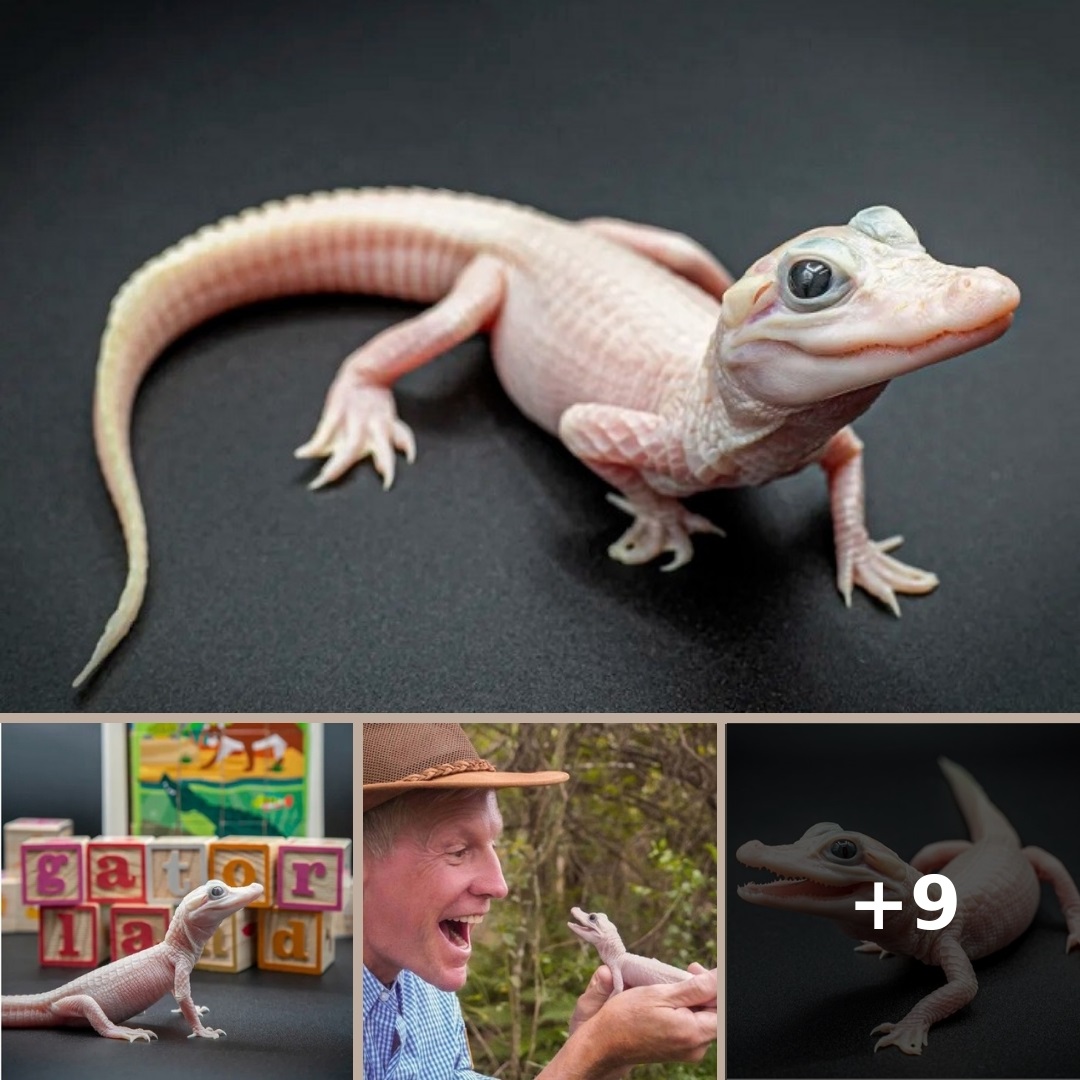The baby alligator was born with leucism, a condition similar to albinism that causes a loss of pigmentation.
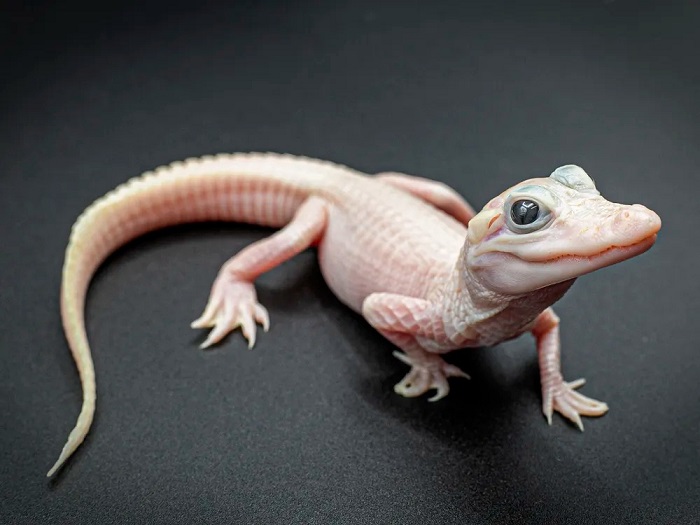
An extremely rare white alligator was just born at the Gatorland wildlife park in Florida — and she’s one of just eight known specimens of her kind.
The gator, who has not yet been named, is a standard American alligator but was born with a condition called leucism, which causes a lack of pigmentation.
“Oh boy, we have some exciting news here at Gatorland,” said Mark McHugh, the president and CEO of Gatorland, according to CBS News. “For the first time since a nest of leucistic alligators was discovered in the swamps of Louisiana 36 years ago, we have the first birth of a solid white alligator ever recorded from those original alligators.”
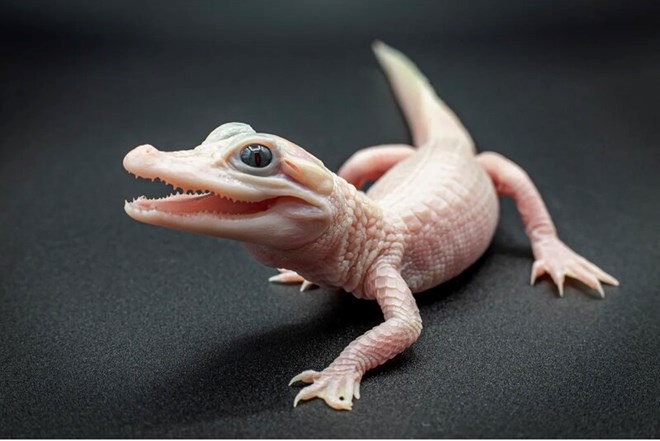
In 1987, a group of leucistic alligators was found living in a swamp in Louisiana. Three of those gators now live at Gatorland in Orlando, and the newborn alligator is the offspring of one of those gators.
“This is beyond ‘rare,’” McHugh said. “It is absolutely extraordinary!”
The actual number of leucistic alligators in the wild is impossible to determine, but the baby gator is just the eighth documented specimen in existence, and the first one born in captivity.
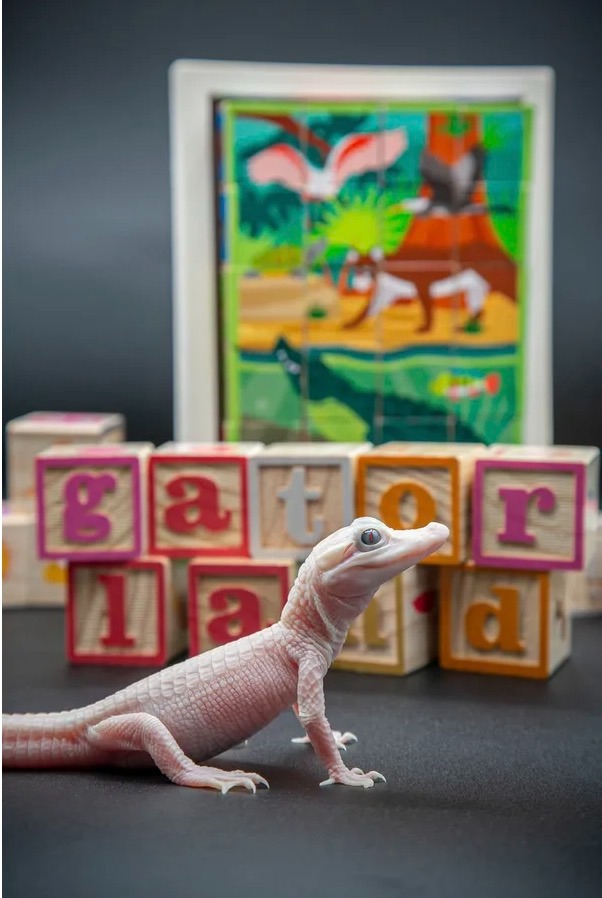
While similar to albinism, which is a genetic disorder causing a lack of pigmentation, leucism is a partial loss of pigmentation, often resulting in splotchy coloring.
Animals with leucism typically have normal-colored eyes, while those with albinism often have red or pink eyes, according to Smithsonian Magazine. The condition also causes extreme sun sensitivity.
“Leucistic alligators are the rarest genetic variation in the American alligator,” stated a news release from Gatorland. “Leucism in alligators causes white coloration, but they often have patches or splotches of normal coloration on their skin. Without the darker skin pigmentation, they can’t have direct sunlight for long periods of time because they sunburn easily.”
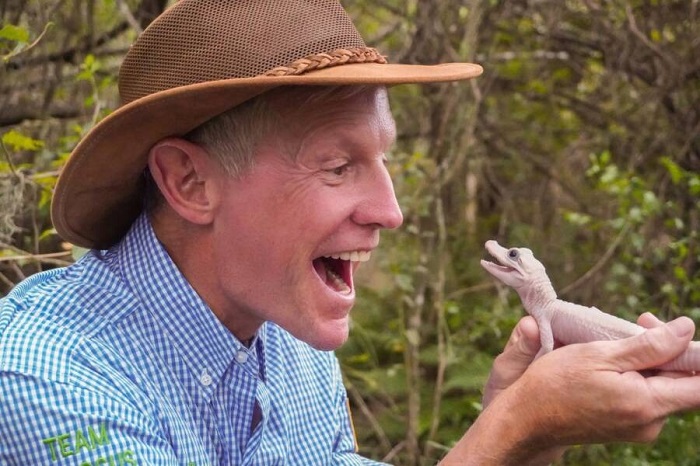
Leucistic gators also lack the American gator’s protective green camouflage, making them easy prey in the wild.
The leucistic baby gator born at Gatorland weighs just 3.4 ounces, measures 19.2 inches long, and has bright blue eyes. She was born alongside a twin brother, who is not leucistic and has normal coloring.
Both of the babies were given a clean bill of health from the park’s veterinarian.
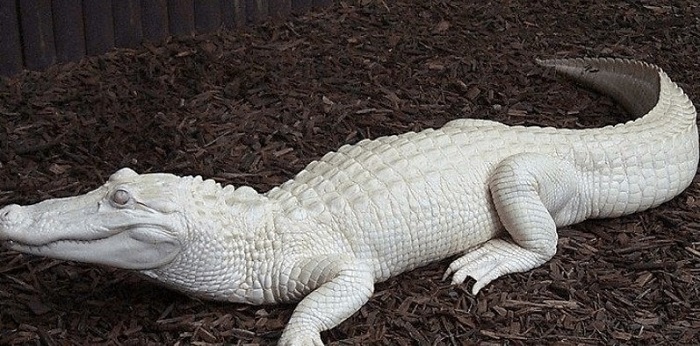
“These are incredibly special animals in the reptile world, and we are being very careful with their safety and security,” McHugh said. “We plan to have them on display early next year so guests can see them, learn about them, and fall in love with them like we have.”
The park is asking for the public’s help in naming the two new baby gators. Some fun names have already been submitted, like Pearl and Emerald, Barbie and Ken, Elsa and Olaf, and Grits and Gumbo, according to USA Today.
The park previously enlisted the public’s help to name another alligator, which was missing its top jaw. Voters eventually settled on the name “Jawlene” (a nod to the Dolly Parton song).
